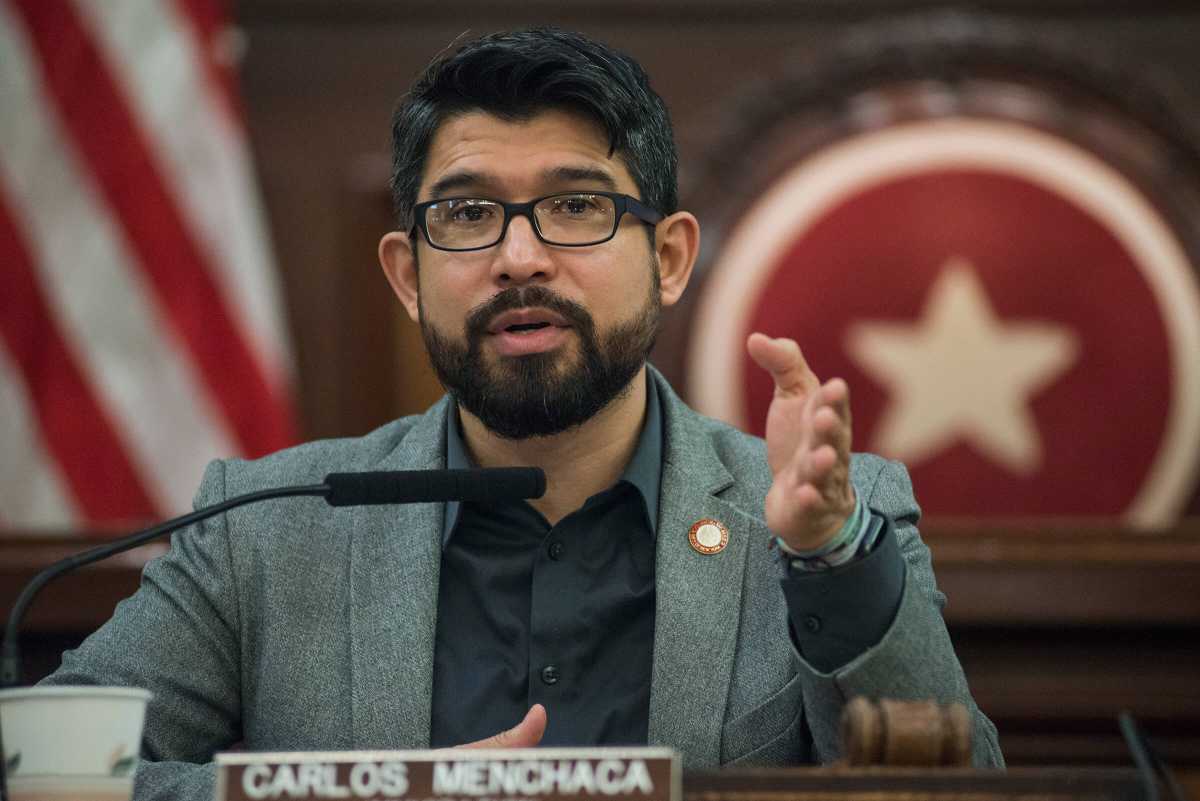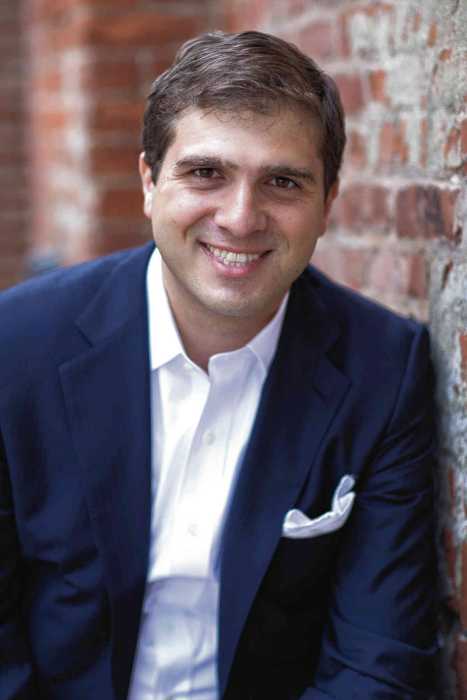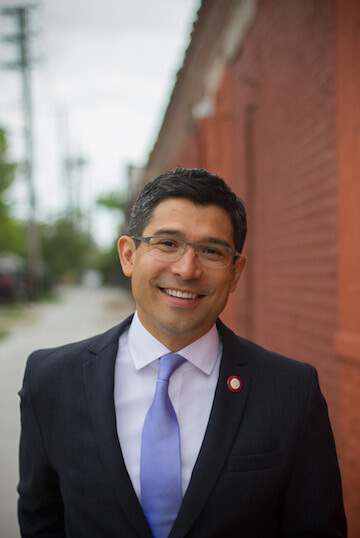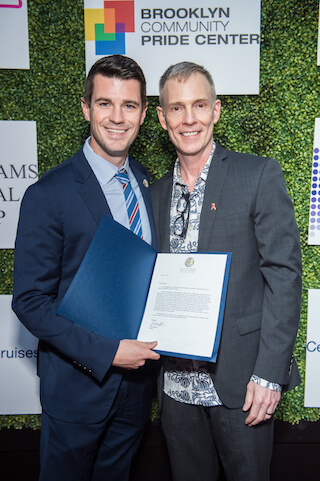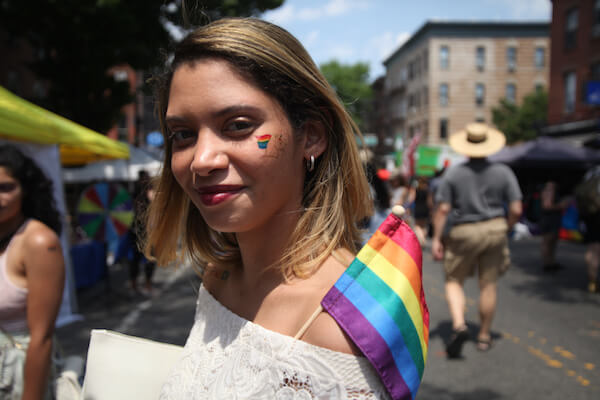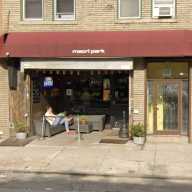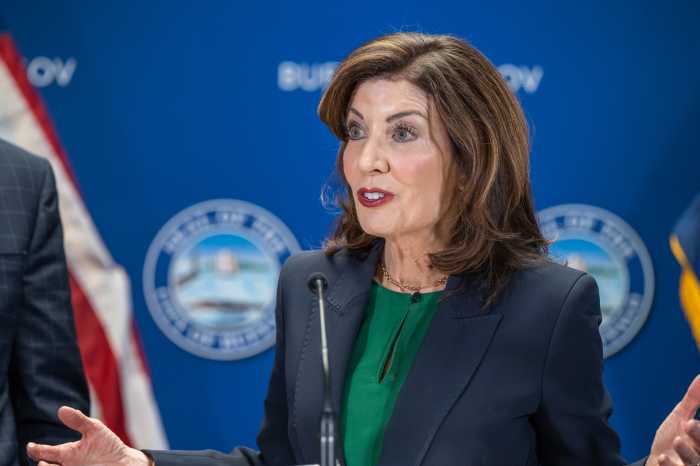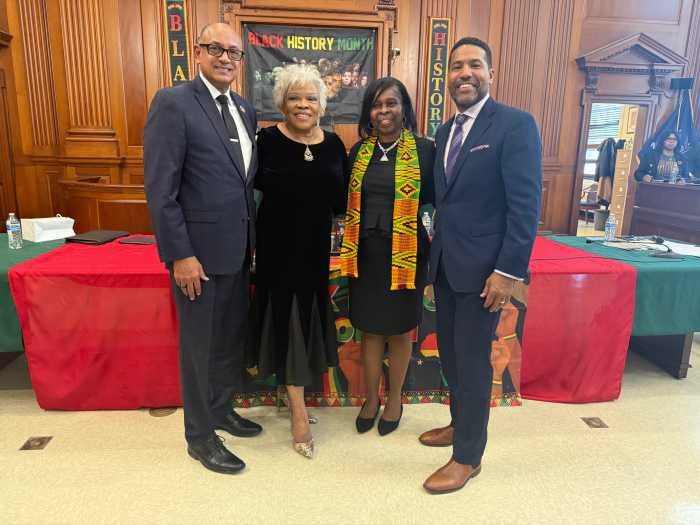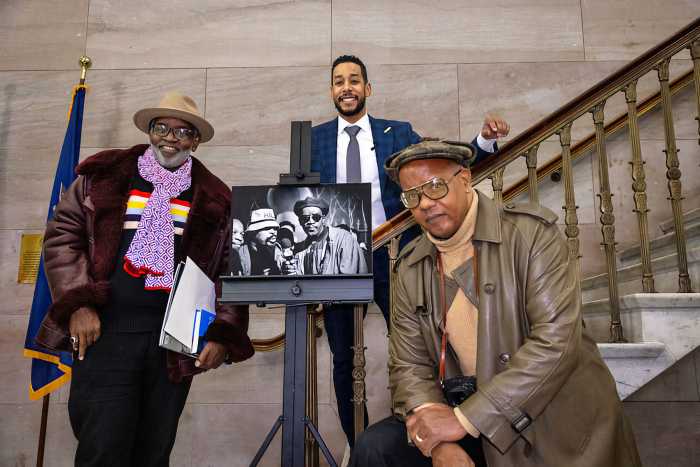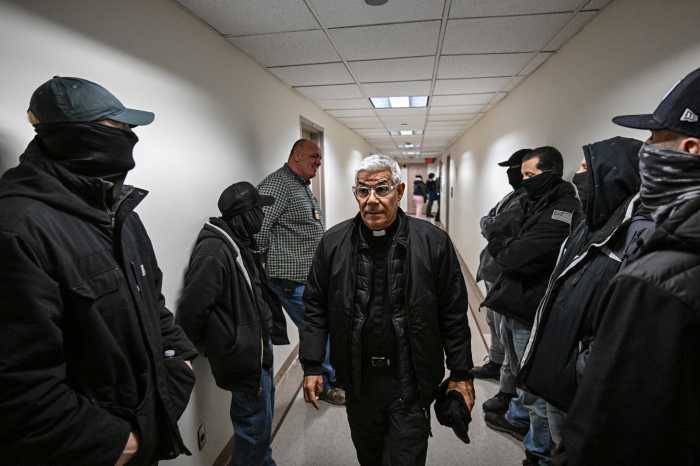Following a year of tumult in which demonstrators turned out in record numbers across the US to protest police violence against African-Americans, New York’s 2021 Democratic mayoral primary is shaping up as a referendum on the progressive demands that have sprung up from activists — many of them young and from communities of color — nationwide.
Among more than a dozen contenders, Brooklyn’s out gay Carlos Menchaca, a two-term councilmember whose district centers on Sunset Park, Red Hook, and Greenwood Heights and who was the city’s first Mexican-American elected official, is emblematic of the major issues animating the striking political energy on the left. Representing a district with a significant concentration of Latinx and Asian-American immigrants, Menchaca has put forward uncompromisingly progressive positions on police reform, affordable housing, income inequality, economic development and empowerment, and transgender rights.
To be sure, others in the field have embraced issues that Menchaca is championing — including a number who so far have raised more money and therefore received greater ink in the press. The challenge in the weeks and months ahead of the June 22 primary facing the Brooklyn councilmember, who only entered the mayoral race in October, is to generate the grassroots dollar support that will qualify him for generous city campaign finance matching funds and thereby allow him to bring his message to a city of more than eight million residents.
During the heated city budget debate last summer, Menchaca became one of the Council’s most outspoken proponents of the controversial “defund” movement. Activists demanded that the Council cut an NYPD budget officially pegged at $6 billion dollars in half, shifting many functions — such as dealing with troubled individuals publicly exhibiting signs of mental illness — to non-law enforcement professionals they argue are better equipped to defuse situations without resorting to a violent solution.
At the conclusion of the budget process, the Council claimed to have shaved roughly $1 billion dollars from the NYPD, a figure widely disputed since many policing functions, such as school safety, were merely shifted to other departments without any change in how they were carried out.
Asked whether he believed that the $1 billion dollar figure was real, Menchaca, in an interview this month, responded, “No way.”
In fact, he argued, the true police budget far exceeds $6 billion when police functions and support already lodged elsewhere in city government are factored in.
“I think the budget is actually a lot larger,” he said. “We didn’t get to the end of that discovery.”
Menchaca’s dissatisfaction with how the NYPD funding debate played out was “one of the primary reasons” he joined 16 colleagues on the 51-member Council in voting against the final budget that out gay Speaker Corey Johnson negotiated with Mayor Bill de Blasio.
Pointing to a Daily News analysis that showed that opponents of the budget were penalized in the allocation of discretionary and capital funding by the speaker, Menchaca said, “It sure as hell looks like I was punished. All of my district’s items on the speaker’s list were zeroed out.” Alone among the 51 members, Menchaca received no funding.
Johnson’s office, at the time, rejected the notion that progressive dissidents were treated any differently than their colleagues, with a spokesperson arguing that with a $9 billion revenue shortfall, “tough decisions had to be made all around.”
In pressing for a huge cut in NYPD funding, Menchaca acknowledged there was stark disagreement among councilmembers representing communities of color on the issue of police funding. Nobody disputes that law enforcement disproportionately penalizes people of color, but many councilmembers argued that public safety remains a critical, and often inadequately addressed concern in their neighborhoods. A number of councilmembers also noted that a significant reduction in NYPD headcount would fall unfairly on younger officers who come from more diverse backgrounds than longer-term veterans on the force.
Asked about that perspective, Menchaca said, “Young people know that more police does not equal greater public safety.” The NYPD, he said, is a “paramilitary organization led from the top down and bred by the premise of white supremacy.” The policies and attitudes of the force, he argued, are the same regardless of the color of any one officer’s skin.
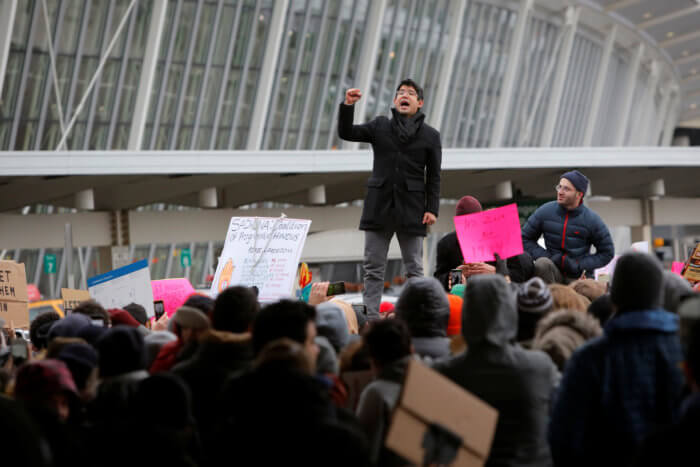
Menchaca discussed defunding and addressing police reform as a part of “the urgency of meeting all of a community’s needs rather than criminalizing poverty — and of changing a community’s relationship to government.”
In fact, he cited success in working with a precinct in Sunset Park, which he said had a longstanding bad track record but with “better leadership” achieved a big difference in its relations with the community.
Looking back at last summer’s budget debate, Menchaca noted that Johnson committed to listening to communities of color, but given the divide there, “the loudest voices got their way.” The divisions among councilmembers of color “became the easy way out” for the speaker, he said.
Asked how the reforms he envisions can overcome a powerful police culture protected by unions stridently resistant to change, Menchaca said, “You have to talk about it and write about it. Acknowledge that it represents generational white supremacy.”
Comparing his posture to his rival mayoral hopefuls, he argued, “In many ways I think I am the most radical as an elected official.”
Among other changes he recommends are the elimination of the vice squad, which has long ensnared members of the LGBTQ community in numerous different ways, empowering the Civilian Complaint Review Board with enforcement and disciplining authority, and bringing on a new commissioner.
One important factor in the push to reform the NYPD, Menchaca noted, has been the empowerment of transgender women of color who were the driving force in repealing a statewide sex work-related loitering statute, often dubbed a Walking While Trans Ban, that targeted transgender women. City government, he said, should be proactive in encouraging such empowerment, especially among immigrant trans women.
Since before his election to the Council in 2013, Menchaca said, he has supported full decriminalization of sex work, noting the dangers sex workers, including trans women, face when law enforcement efforts stymie their ability to provide safety protections for themselves in carrying out their trade.
He acknowledged the concerns some leading feminists have about the decrim movement, but said their warnings that it would undermine the war on sex trafficking is a “conflation of issues” that hampers both the international criminal push against trafficking and the physical safety of adult sex workers engaged in consensual activity.
Representing an economically challenged community, Menchaca is keenly aware of both the city’s housing affordability crisis and the harassment and neglect many tenants suffer at the hands of landlords. At forums across the city, he has talked about “municipalizing” a wide array of spaces — including the estimated 15,000 empty apartments and units where tenants have to contend with abusive landlords, as well as hotels and other commercial spaces. The city, he said, should use all of its legal authority, including eminent domain, to take possession of available space, and can also work to incentivize landlords to bring their buildings into city affordable housing programs and to use commercial spaces to create large numbers of micro units.
One element in Menchaca’s housing proposals is a focus on ownership, especially where tenants have reliably paid rent in a building for years while landlords provide no improvements and sometimes curtail basic services. In such cases, the city already steps in to provide emergency repair. Menchaca’s ownership proposals would take that approach “to the max,” with the city using its powers to take possession of a neglected property on behalf of tenants.
“Housing is a human right,” he said, “and all of this follows from that.”
In a campaign where entrepreneur Andrew Yang is known for his advocacy of a universal basic income, Menchaca sees a guaranteed basic income not as something to spread across residents of any economic status but rather as a tool to provide support to New Yorkers living in poverty, many of them immigrants, who have little or no connection to any government aid. The program he envisions would provide such support without reducing any other government assistance, and in what would likely be a controversial approach he is considering initiating it with a pilot program for undocumented immigrants, of whom there are many in his Council district.
Menchaca also proposes the establishment of a public bank that would invest in creating affordable housing and encouraging small business development. His concept differs sharply from the existing Economic Development Corporation, with which he has battled during his time on the Council over its developer-driven proposals for reinvigorating the Sunset Park waterfront warehouse district. Complaining about the lack of community input and benefits from a major project dubbed Industry City that he said would gentrify the area and displace residents, Menchaca rallied other local elected officials last year in forcing the developer to withdraw their plans.
The son of a single mother who raised seven children in public housing in El Paso, Menchaca, who is 40, got his start in public service working first for then-Brooklyn Borough President Marty Markowitz and later for out lesbian Council Speaker Christine Quinn. He landed on the Council after successfully challenging an 11-year incumbent, Sara González, faulting her in part for her inattention to the ravages that Superstorm Sandy visited on the district’s waterfront. Four years later, Menchaca withstood a primary challenge from Félix Ortiz, then a major force in the State Assembly who had the support of the Brooklyn Democratic organization.
In both races, Menchaca proved his mettle in organizing first-time voters, with the district setting primary turnout records in both 2013 and 2017. To repeat that success citywide, however, will take considerably more resources than he has, he acknowledged. In a race where the top three money-raisers have current campaign balances ranging from $3.5 to $7.5 million, Menchaca has raised barely over $60,000, according to his last public filing. His modest fundraising to date was likely a factor in Brooklyn’s Lambda Independent Democrats, an LGBTQ club he has long been affiliated with, deciding to forgo his candidacy as it plans a runoff between Comptroller Scott Stringer, who has roughly $7 million on hand, and Dianne Morales, a non-profit leader who has worked on homeless youth and young adult career training issues. Morales has a far more modest campaign balance than Stringer, but has still outraised Menchaca by almost six to one.
The best-resourced campaigns, however, are buffered by generous matches from the city campaign finance program. Menchaca will not be eligible for that until he raises at least $250,000.
“I am struggling with funding,’’ he told Gay City News. “Vision does matter, but you have to have the resources to match. I am reaching out to people who want an elected official with experience who has stood with the people and who has taken hits for it.”
Menchaca is pushing hard to reach the $250,000 matching funds minimum by the next filing date on March 15.
To sign up for the Gay City News email newsletter, visit gaycitynews.com/newsletter.

